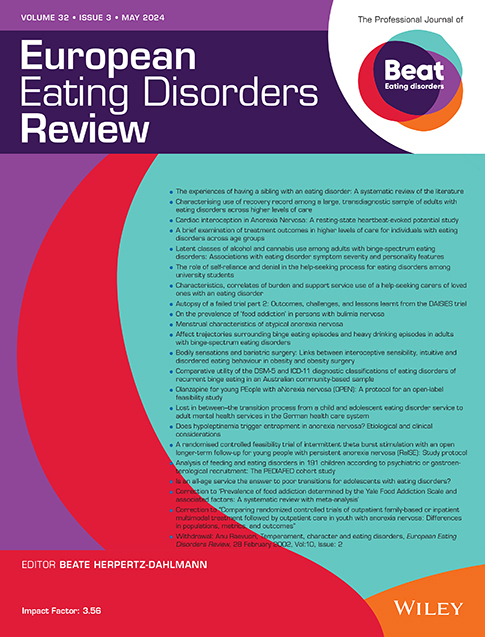Adolescent Anorexia Nervosa: Disentangling Inpatient Therapeutic Interventions
Abstract
Objective
Anorexia Nervosa (AN) is a complex eating disorder that presents significant challenges in adolescent treatment. This study examined the impact of targeted therapeutic interventions on weight trajectories and patient engagement among female adolescents receiving inpatient treatment.
Methods
A sample of 42 female adolescents (aged 12–18) undergoing inpatient treatment for AN was studied. The study investigated weight gain patterns in response to six specific therapeutic interventions and analysed the relationship between intervention strategies and patient weight progression.
Results
Significant variations in weight gain were observed across different therapeutic interventions. Interventions involving treatment contract renewal, conversations with a senior clinician, and treatment pauses demonstrated notable impacts on patient weight trajectories. Particularly intriguing were instances in which potential treatment termination triggered substantial weight gain within the following week, suggesting complex psychological mechanisms underlying patient motivation.
Conclusion
The study provides critical insights into the nuanced dynamics of inpatient AN treatment for adolescents. The findings emphasize the importance of individualized, motivational therapeutic strategies that go beyond traditional weight-focused interventions. While acknowledging limitations such as a small sample size, this study offers preliminary evidence supporting the development of phase-specific treatment protocols to optimize patient outcomes and therapeutic engagement.

 求助内容:
求助内容: 应助结果提醒方式:
应助结果提醒方式:


